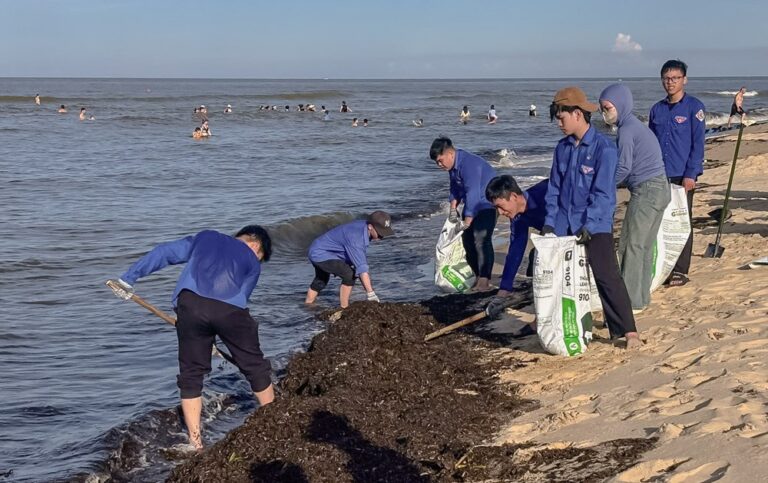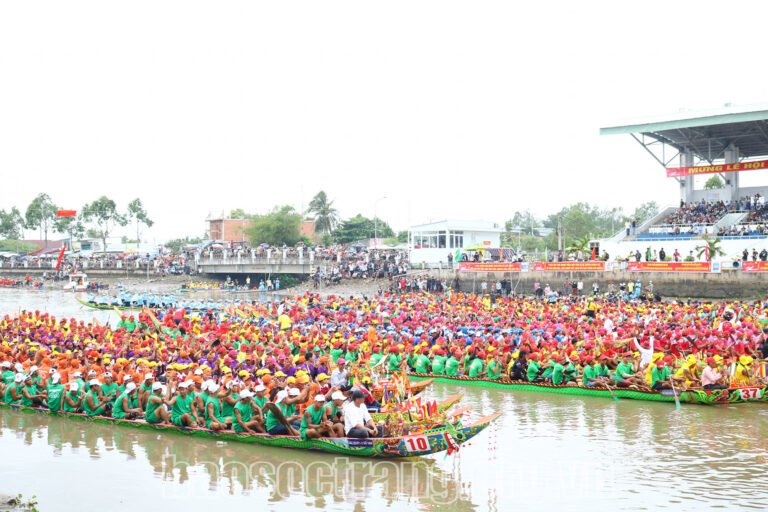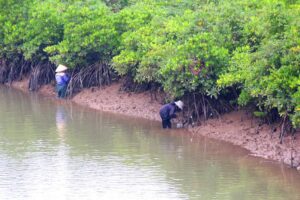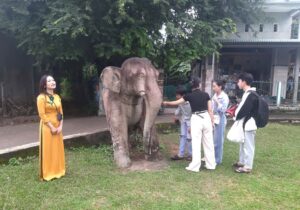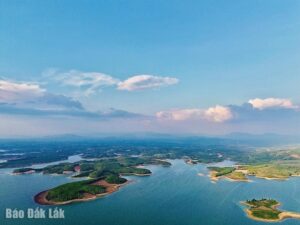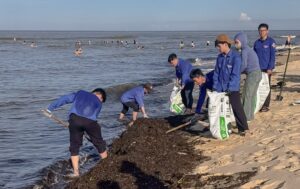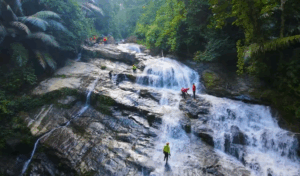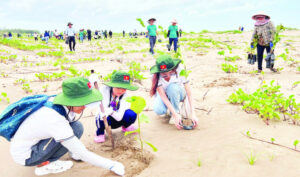Philippine fisherman Abner Abrigo used to enjoy feasting on dolphins and turtles until he realised they were more valuable as tourist attractions. The wiry 28-year-old said eating dolphin "adobo" style had been his top choice -- a reference to the Spanish-inspired cooking of meat in a thick broth of soya sauce, vinegar and garlic that is popular among all Filipinos.
Now, Abrigo and others from a small fishing community on the dazzling western Philippine island of Palawan help to take visitors dolphin watching.
"The extra money from the dolphin watching makes a big difference to our livelihoods," Abrigo told AFP from a dock in Palawan's capital, Puerto Princesa.
Across Asia, similar types of micro-businesses are offering local communities financial incentives to protect their environments as they take advantage of the region's small but growing "ecotourism" industry.
Members of the ethnic Qiang minority in mountainous southwest China are selling meals made from organic produce to visitors, while in Indonesia locals are taking tourists from rainforest eco-lodges to meet endangered orangutans.
The travel industry and governments are also responding to the rising demand for "green" travel, with Cambodia recently becoming the first Southeast Asian nation to commit to the Global Sustainable Tourism Council's principles.
On the Internet, travellers have a myriad of choices from tour operators promoting "sustainable" holidays, including offers to buy carbon credits to offset air travel and to stay at high-end resorts that embrace green practices.
"Ecotourism is a still a niche market but interest is rising," John Koldowski, deputy chief executive officer of the Pacific Asia Travel Association, told AFP.
"This is driven by an awareness generally in the environment and being green and sustainable, but also in something that's becoming in short supply in the world -- peace, quiet and solitude."
Government leaders, local communities and non-government organisations on Palawan, one of the Philippines' most beautiful and biologically diverse islands, have been among the most enthusiastic adopters of eco-tourism in Asia.
Abrigo's fishing community -- as part of an ecotourism programme called Bayanijuan run by the Puerto Princesa government and Philippine media company ABS-CBN -- has run dolphin and whale watching tours for about two years.
Abrigo and some of his neighbours act as spotters for the tourist vessel while out fishing themselves in their small outrigger boats.
If they are the spotter that finds the dolphins or whales for the tourist boat, they get paid 25 pesos (about 60 cents) for each passenger on the boat.
"Sometimes there are more than 20 people on the boat... jackpot," Abrigo said with a smile.
While Abrigo still needs to fish to guarantee enough money to survive, other former fishermen elsewhere on Palawan have given up their old jobs altogether to cater for the growing number of tourists.
Edwin Bermejo, 43, confessed to having performed trawl net fishing in Puerto Princesa's stunning Honda Bay for many years.
Trawl net and other destructive methods of fishing, such as using dynamite and cyanide, have ruined many of Palawan's precious coral reefs over the past few decades.
"We didn't understand the results of what we were doing," he said.
But as fish catches started to dry up and tourists began to arrive in the 1990s, Bermejo said he and other fishermen around Honda Bay realised they needed to change their way of living if they were to survive.
With the help of local non-government organisations and more recently the Bayanijuan programme, they turned their fishing vessels into island hopping boats.
They also worked with the Puerto Princesa government to enforce a ban on destructive fishing practices, doing volunteer patrols and reporting any offences to authorities.
"Our fish stocks have slowly recovered," Bermejo told AFP from aboard a boat in Honda Bay that takes tourists to the beaches of some of the area's tiny islands, as well as snorkelling and diving in the remaining coral reefs.
His community association is now intending to take out a loan to nearly double its current fleet of 66 boats in an effort to meet a recent boom in tourist numbers.
"This would never have happened if we kept on fishing the way we did," Bermejo said.
The mayor of Puerto Princesa, Edward Hagedorn, is one of the driving forces behind the ecotourism effort, according to many environment activists on Palawan who regard him as an ally in their campaign to protect its ecosystems.
Hagedorn said that after first becoming mayor in 1992 he banned mining, logging and factories, confident that in the long-run more jobs would be created by preserving the area's natural wonders and attracting tourists.
Tourist numbers to Puerto Princesa jumped from 12,000 in 1992 to 425,000 in 2010, and many more are expected as the area gains global fame -- National Geographic named Palawan as one of its top-20 destinations this year.
"Now with the number of visitors rising, it's giving more and more income to the people. But if we allowed mining and logging... those jobs would have been just temporary," he said.
For Anthony Cuvinar, 27, the tourism boom has turned him from a struggling handicraft maker into a boatman and tour guide for a fireflies tour who can now earn up to 20,000 pesos (470 dollars) a month -- a good wage in local terms.
But when asked while paddling his kayak along the Iwahig River at dusk what he liked most about his job, Cuvinar did not mention the money.
"When I got into this I learnt to love nature and I enjoy helping other people to understand the importance of nature," he said, as nine egrets flew past in V formation.


